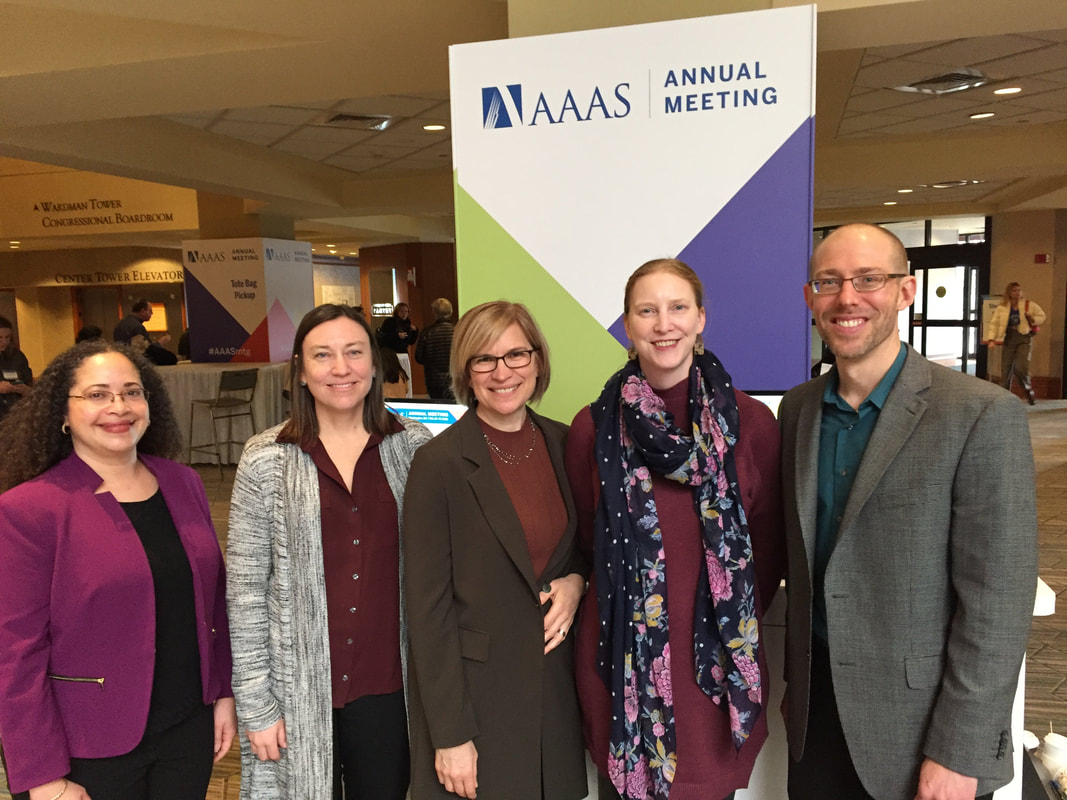What is STEP?
Our NSF-funded STEP project (2014-2019) explored the relationships between the composition, climate, and practices on environmental science teams. Some previous research has shown that team composition (e.g., gender, ethnicity, or discipline of the team members) can influence science outcomes such as effectiveness and productivity. But, very little previous research has examined how team composition affects scientists' ethical practices related to activities such as authorship, mentoring, and data sharing.
Using qualitative and quantitative surveys, we found that individuals on teams with more demographic diversity reported a more positive climate than those on teams with less demographic diversity. Positive perceptions of team climate were also related to greater overall satisfaction with the team, authorship practices, and perceptions of greater team data sharing. However, we found that individuals from underrepresented groups tended to perceive team climate more negatively than majority-group members. These results highlight the importance of team climate in promoting diversity in interdisciplinary science teams.
We have disseminated our work through peer-reviewed publications and conference presentations. We have also facilitated workshops to help teams develop more thoughtful authorship policies and practices to guide their collaborative manuscript development. It is our hope that these workshops and the publicly-available materials will increase the reach of our work and help provide support for all team members.
Using qualitative and quantitative surveys, we found that individuals on teams with more demographic diversity reported a more positive climate than those on teams with less demographic diversity. Positive perceptions of team climate were also related to greater overall satisfaction with the team, authorship practices, and perceptions of greater team data sharing. However, we found that individuals from underrepresented groups tended to perceive team climate more negatively than majority-group members. These results highlight the importance of team climate in promoting diversity in interdisciplinary science teams.
We have disseminated our work through peer-reviewed publications and conference presentations. We have also facilitated workshops to help teams develop more thoughtful authorship policies and practices to guide their collaborative manuscript development. It is our hope that these workshops and the publicly-available materials will increase the reach of our work and help provide support for all team members.
PIsKendra Cheruvelil
Kevin Elliott Georgina Montgomery Isis Settles Pat Soranno |
Current CollaboratorsErin Cech
Sheila Brassel Kathy Robotham Jackie Beck |
Past collaboratorsClaire Boudreau
Ellie Phillips Jordan A. Fournier Malcolm Davis |



